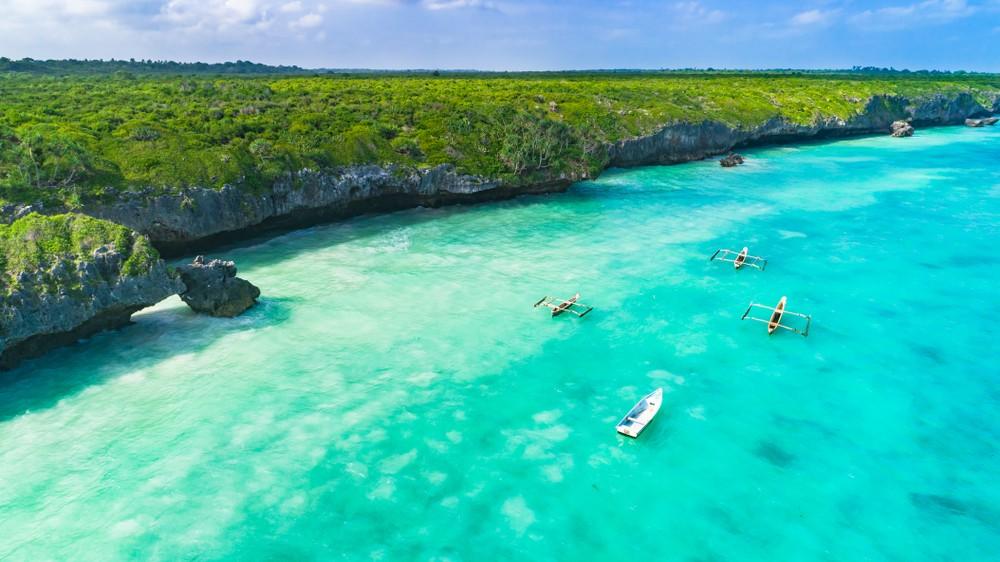This landscape is more than just a touch of paradise. For many holidaymakers who are on safari in the savannah in Tanzania, this region with its many animals and natural beauty is without a doubt a piece of this side of Eden. Although this country was also exploited in the colonial era and the population of animals was drastically reduced because they were hunted and killed by poachers, Tanzania’s natural wealth has been preserved. Lake Victoria is one of the sources of life in this African country.
It is the “Mediterranean of East Africa” and its floods also wash the coasts of Kenya and Uganda. Nowhere else in the world can people admire such biodiversity as in Tanzania’s magnificent Ngorongoro Crater. The peoples of the world must help to preserve this paradise on earth – and tourism can also play an important role in this.

On safari in the Serengeti and then a beach holiday on the beautiful beaches of Zanzibar – that could be a successful mix. The landscapes that a holidaymaker encounters south of the equator in Tanzania are fundamentally different. There are the subtropical zones with lush vegetation in the mountain forests of Gombe and in the Mahale Mountain National Park. This is the refuge of the chimpanzees, who proceed very carefully in their search for the sweet and sour berries, their favorite food. It was the Englishwoman Jane Goodall who studied chimpanzees for three decades. Today, the endangered primates are visited by tourists accompanied by experienced guides.
But the highlight of every stay in Tanzania is undoubtedly the Serengeti with its almost endless expanse and its huge population of animals. All this is Africa in its most original form. The Serengeti and the Ngorongoro Crater present themselves as a wonderland of nature. Seven thousand white-bearded wildebeest live here alone. Bernhard Grzimek has set himself a monument with his appearances on television and let the world look at this pasture of wild animals. “The Serengeti must not die” was the title of a successful film by the legendary zoo director from Frankfurt am Main. Grzimek’s urn was buried somewhere on the edge of the crater – at the side of his son Michael, who died in an accident while filming in Africa.

The proud Maasai call this region “Siringet”, which means “Endless Steppe”. If you travel through Tanzania, you won’t want to miss out on comfortable hotels or lodges on your safari. He finds them in an astonishing abundance. And if he’s in the right place at the right time, he’ll be able to watch up close as millions of zebras and wildebeest cross the rivers in search of fresh grass, some of them becoming prey to crocodiles.
Above this spectacle towers a mighty mountain – Mount Kilimanjaro, which rises from the green rainforest. Those who dare to do so can climb to the “roof of Africa” in a route lasting several days, to the snow-capped summit of the almost six-thousand-metre-high giant. And after the exertions of this unusual mountain tour, many will look forward to the beaches of Zanzibar. The sea is almost always around 27 degrees warm and the white sand, which looks like it is made of powdered sugar, is perfect for walks and hikes. Tranquil fishing villages stretch along the coast like pearls on a string and their inhabitants are happy to welcome guests from another world. They willingly let themselves and their centuries-old culture look into the cards. The time is over when Zanzibar became a plaything of the powers that be, because the island was an important stop on the historic trade routes between the African continent and the countries of Arabia.
Travel information Tanzania
| Capital | Dodoma |
|---|---|
| Form of government | Federal Republic Presidential system |
| Currency | Tanzanian Shilling (TZS) |
| Area | approx. 945,087 km² |
| Population | approx. 57,310,019 (2017) |
| Languages | Swahili |
| Electricity grid | 230 volts, 50 Hz |
| Area code | +255 |
| Time zone | UTC+3 |
[/vc_column_text][/vc_tta_section]
Tropical climate


